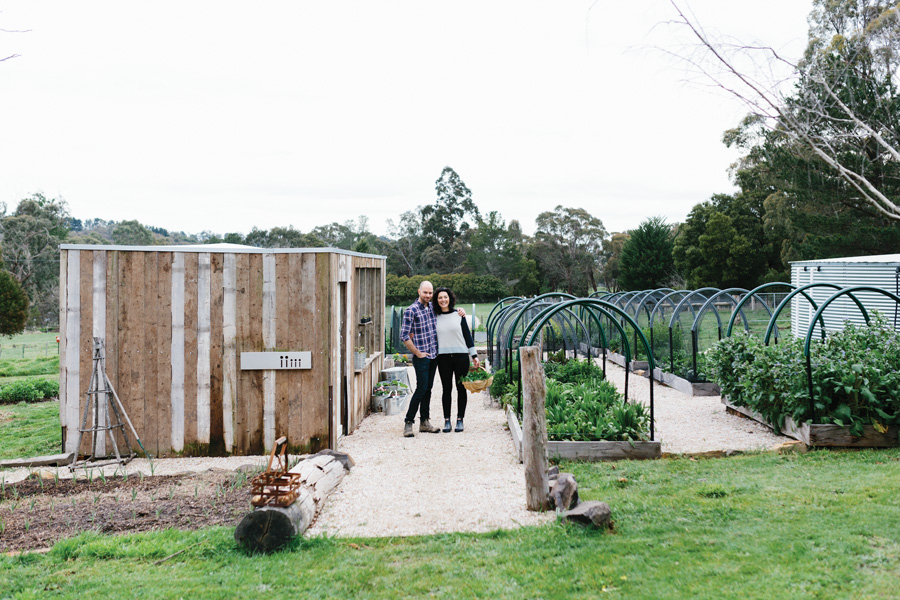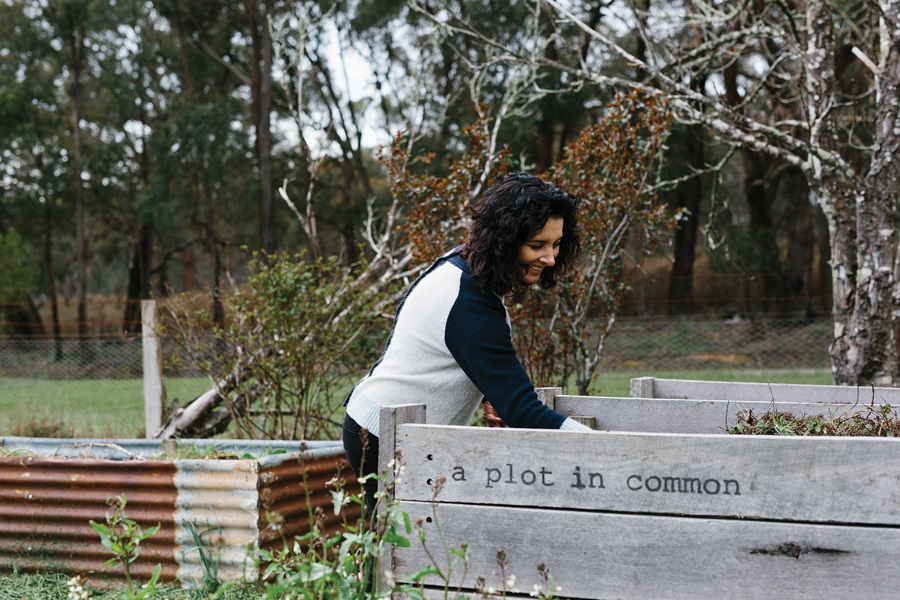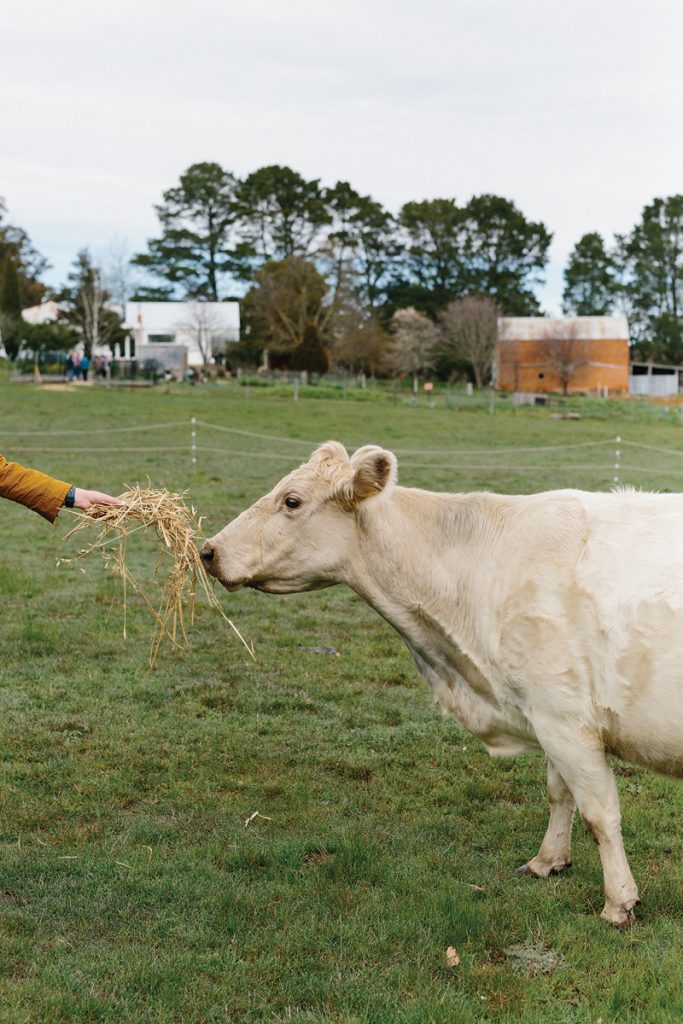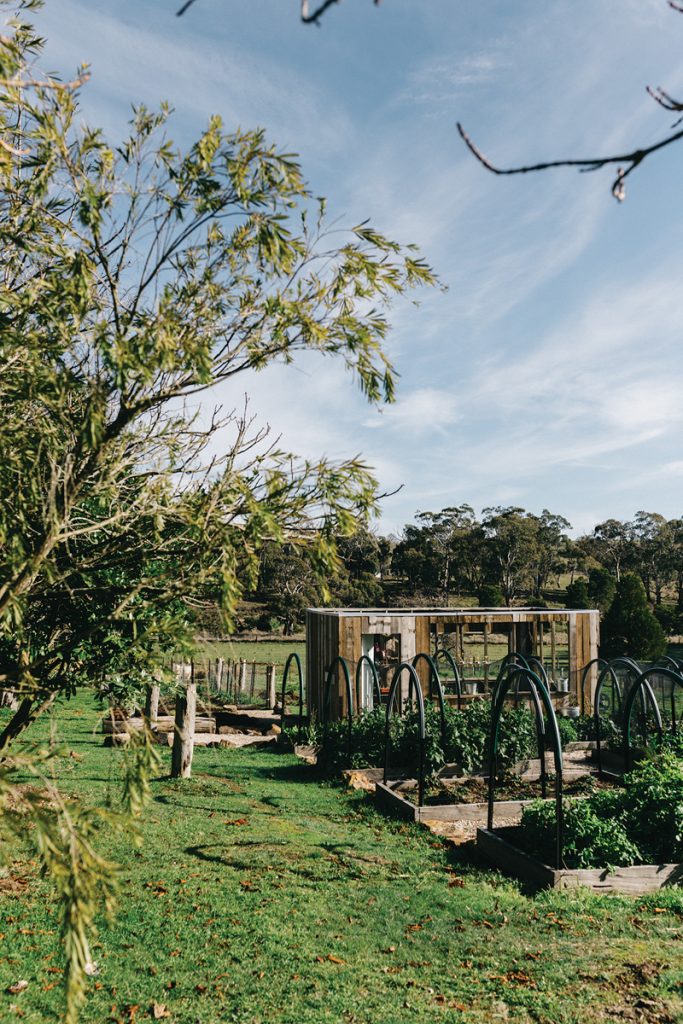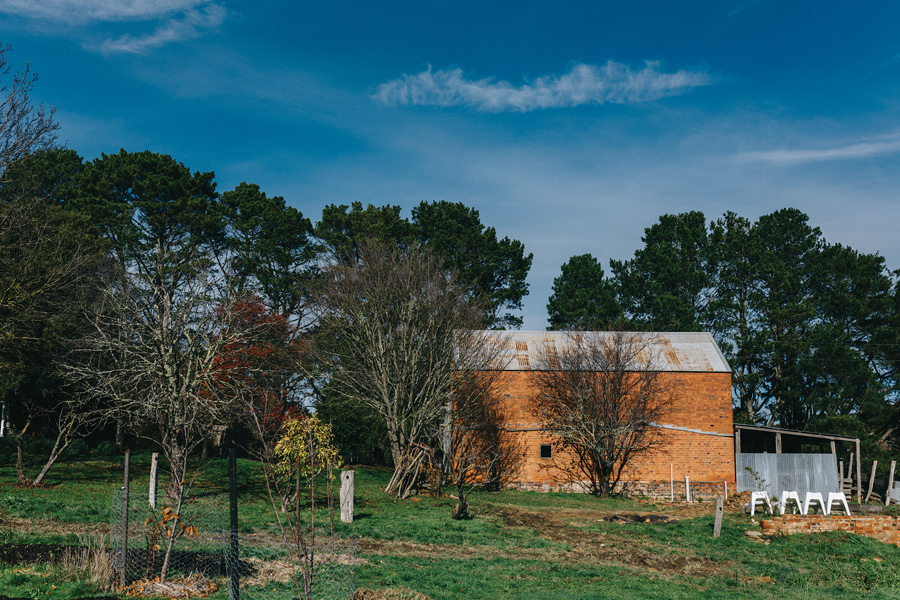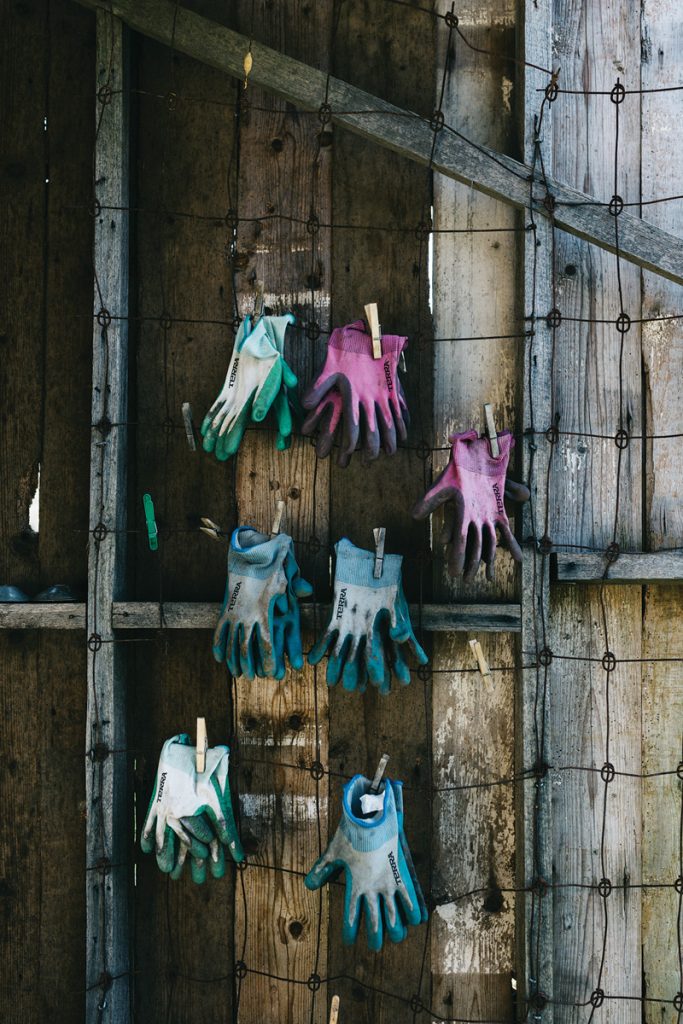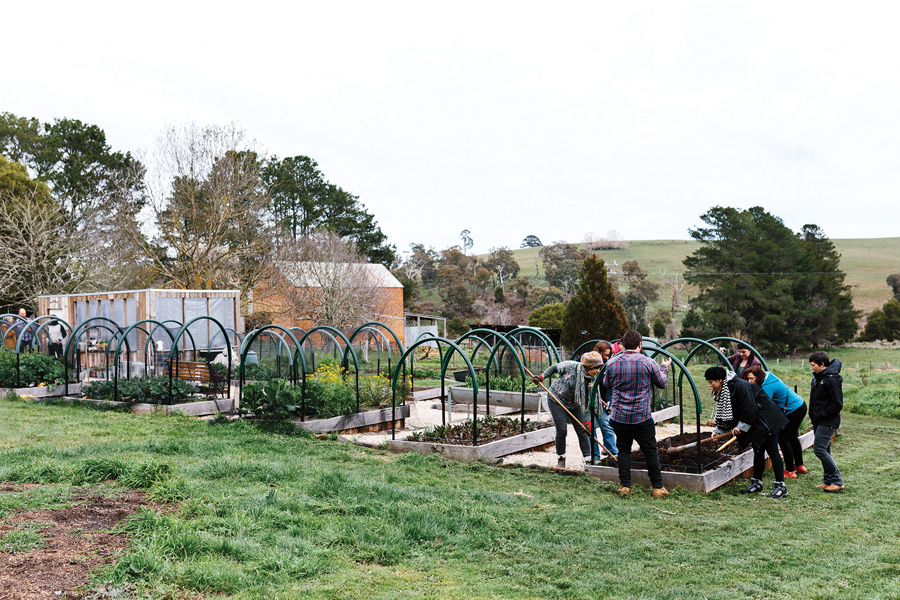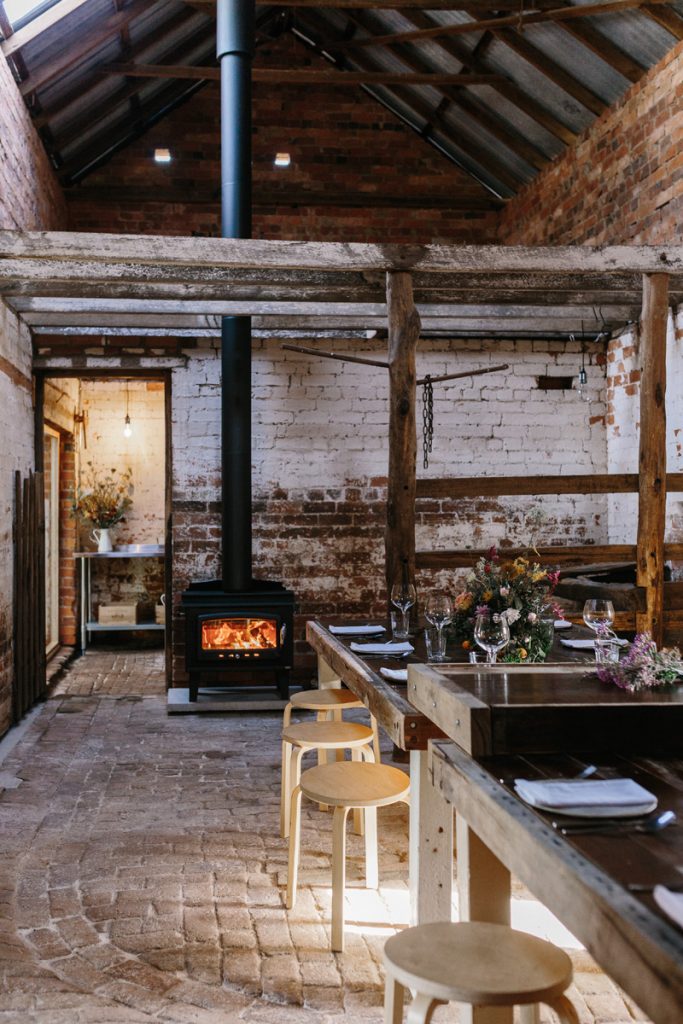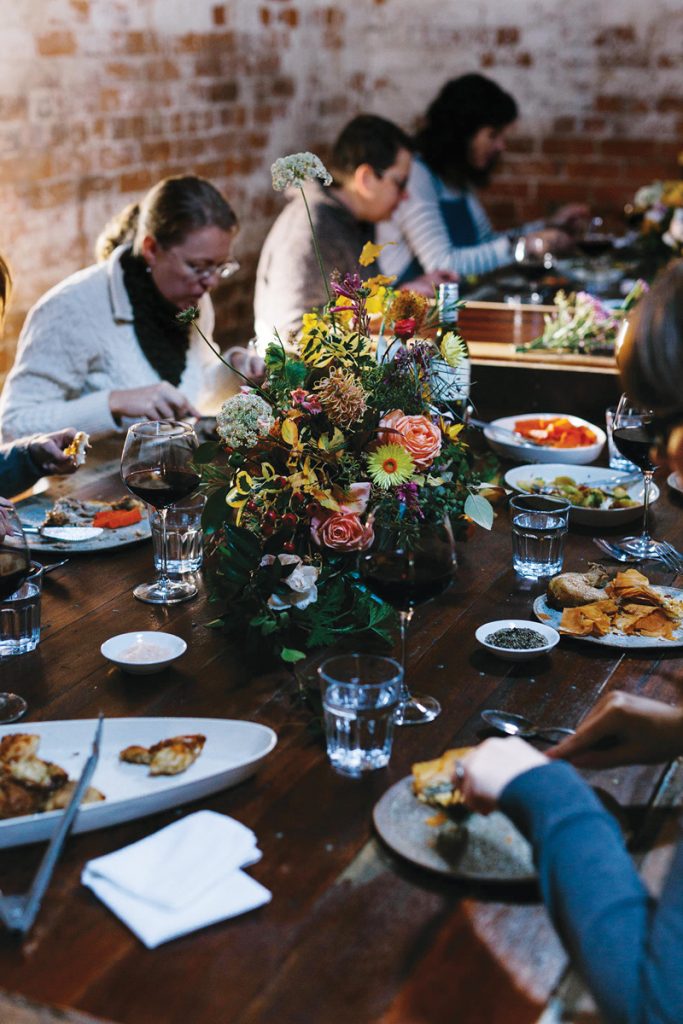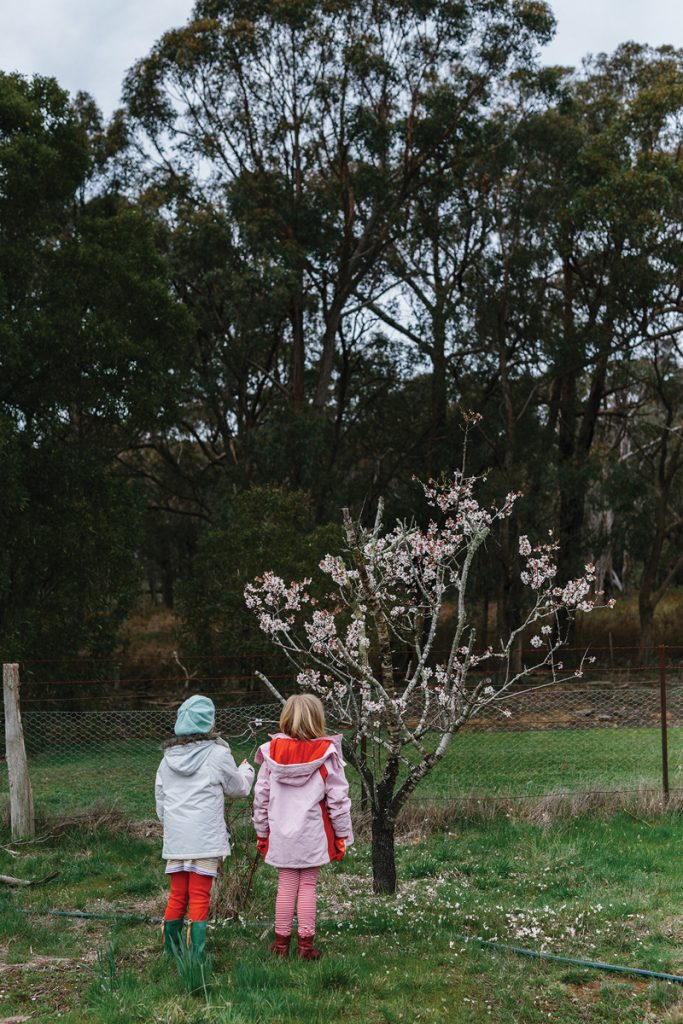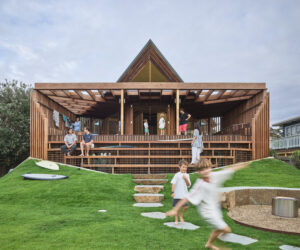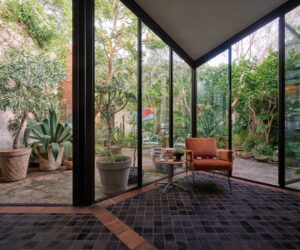Common Ground
A tree change has transformed a Gold Coast family into tenacious, community-focused farmers, and their historic barn into a hub for skill sharing workshops with local makers and artisan producers.
“I didn’t know what basil looked like till I was 25-years-old,” says Ben Shoo, one half of the husband and wife team behind a plot in common, a creative, entrepreneurial little farm in the tiny gold rush town of Lauriston, just outside Kyneton, which is an hour outside of Melbourne in what he refers to as “cheats’ country”, Victoria.
What the self-employed urban designer, his partner Tash and their young children did know about was open-hearted adventure. Six years ago they swapped coastal Queensland for an apartment in Abbotsford to sate their appetite for inner-city life. “We’re food obsessed, we’re coffee obsessed, art, design – it was just so much fun,” Tash says. Visits to a friend’s farm in Clunes inspired their next adventure: trying to grow their own food on a farm within easy reach of Melbourne.
Imagine their delight in late 2012 when they found a 10-acre site an hour from the city, with a small cottage which they later found out had been built from plans from the Robin Boyd Small Homes Service, and the owner next door keen to share his knowledge of farming and the area’s rich history. The clincher was the presence of a barn the Shoo’s later dubbed “The Old Girl”. She was built in the 1880s using clay dug from the property’s dam and fired in the community kiln beside it. Even filled with junk and covered in layers of cow and sheep poo from decades of use as a milking and shearing shed, The Old Girl had presence. “We fell in love with the barn,” Tash recalls.
Design buffs from way back, the couple ultimately converted a tack shed into Ben’s home office and added north-facing living spaces and a master bedroom, maximising light and panoramic views. First though, they devoted their formidable energies into learning the art of farming, with some help from YouTube and lots more from Bruce next door. Within a year they’d fenced the place, built 19 raised garden beds, harvested their first crops, and bought, raised and slaughtered their first pigs, calves and chickens. Tash also home-schooled the kids in the barn. “They were with us when we built our first chicken coop and went and picked up the chickens,” Tash says. “They’ve been a real part of it from the very beginning.”
Keen to help others interested in DIY food production, the couple offered up six garden beds free to anyone interested in using them. The plots attracted people from as far afield as Melbourne and as close as Kyneton, including a city ceramicist whose interest in hosting a local workshop inspired the next stage of a plot in common’s development. They restored and heated The Old Girl and used her as a light, lofty, personality-packed space to hold regular workshops by local artisans in everything from hand quilting to coffee roasting, gluten-free baking and raising heritage livestock.
“This community is just full of incredibly talented creatives,” Tash says. “Once I started to think about how the barn could be used it was just obvious that, with all these people around – I don’t have those abilities, but I can be the perfect host – they can use the barn, and we can take food from the garden, we can make a beautiful lunch, and everyone gets to come out here and experience a day on a farm, you’re close to Melbourne, all those things – it kind of all just fell into place.”
Ben’s now working with local councils and maker friends on small town regeneration projects and Tash is expanding The Old Girl’s offerings to include events and photoshoots. Makers and participants at workshops are forming friendships and collaborating on shared projects, and Tash is planning a series of lunches and dinners showcasing fair food by local producers, as well as a market garden outlet for the farm.
With their ideas changing about what constitutes self-sufficiency, Tash and Ben are excited by the twists and turns their course is taking. “We’ve shifted from trying to produce everything ourselves, to trying to support local producers,” says Ben. “I think that life’s a little bit too short and it should be one crazy, exciting journey while you’re here,” adds Tash. “I’m all for trying new things and giving things a really good, hard go. We live our life that way. The unknown excites me.”
